As you plan holiday meals, spend hours shopping online, and drag the holiday decorations out of storage, your mischievous pet may take advantage of your distraction and get into trouble. Pet emergencies always increase during the holiday season, keeping southwest Austin veterinarians busy. Many pets find holiday foods and decor too tempting to resist, and normally well-behaved pets have mishaps because they become stressed by holiday guests. Follow these tips from our Oliver Animal Hospital team for a pet-safe holiday season.
#1: Just say “No” to your pet’s begging
As you load your Thanksgiving and Christmas tables with luscious goodies, your pet will be drooling along with your guests. Unfortunately, many of your favorite holiday foods are downright dangerous for your pet. Take particular care to prevent them from indulging in these hazardous foods:
- Rich, fatty foods — Turkey trimmings, butter-laden mashed potatoes, and gravy contain more fat than your pet is used to eating, and can upset their pancreas, which produces enzymes that help digest fats. Overstimulation from a fatty meal can cause a life-threatening bout of pancreatitis. The excess enzyme production triggers body-wide inflammation, vomiting, and abdominal pain that often requires hospitalization.
- Garlic, onions, leeks and chives — Your favorite dishes would be bland without these savory ingredients, but all members of the Allium family are toxic to pets, and can lead to anemia. Keep dishes seasoned with fresh, dried, or powdered forms of these ingredients away from your pets.
- Raisins — You likely think of raisins as a healthy snack, but only a few can lead to kidney failure in susceptible pets. If your turkey is stuffed with raisin-studded dressing, ensure your guests don’t share any with your pet.
- Chocolate — Pies, cookies, and cakes often contain this dangerous ingredient, which contains the toxins theobromine and caffeine. Dark and baking chocolate contain the highest toxin concentrations, and as little as one ounce of dark or semi-sweet chocolate can be toxic to small pets.
- Xylitol — After gorging on a big meal, you may decide to bake healthier desserts, and forego calorie-laden sugar. However, ingesting only small amounts of the popular sugar substitute, xylitol, can cause dangerously low blood sugar levels and liver failure.
If you can’t resist your pet’s pleading eyes or meows for a treat, share a few bites of skinless, unseasoned white turkey meat, cooked sweet potato, fresh green beans, or carrot sticks. After dinner, ensure you clean up all leftovers and put all trash outside in a secure trash can, so your pet can’t sneak into the scraps while you enjoy a tryptophan-induced nap.
#2: Provide a quiet retreat for your pet
Your gatherings likely will be smaller this year, but only a few close family members who come for dinner or a gift exchange can create enough chaos to stress your introverted pet. And, as guests pile in with armfuls of food and gifts, your scared pet may dart through the door and become lost, or be hit by a car. If your furry friend isn’t a party animal, or doesn’t appreciate small guests pulling on their ears, provide a place for them to get away. A back room furnished with cozy blankets, your pet’s favorite toys, and soft music makes a perfect pet sanctuary. Also, pack a Kong with canned food and fresh veggies so your pet can enjoy their own long-lasting feast in their quiet haven.
#3: Pet-proof your holiday decor
Many people are decking their halls early this year, and a longer decorating period means more opportunities for your furry friend to get into mischief. Through your pet’s eyes, holiday decorations can look like a houseful of new toys, and you may struggle to keep them from breaking decorations or becoming tangled in a strand of lights. Keep a close eye on your pet around these hazards:
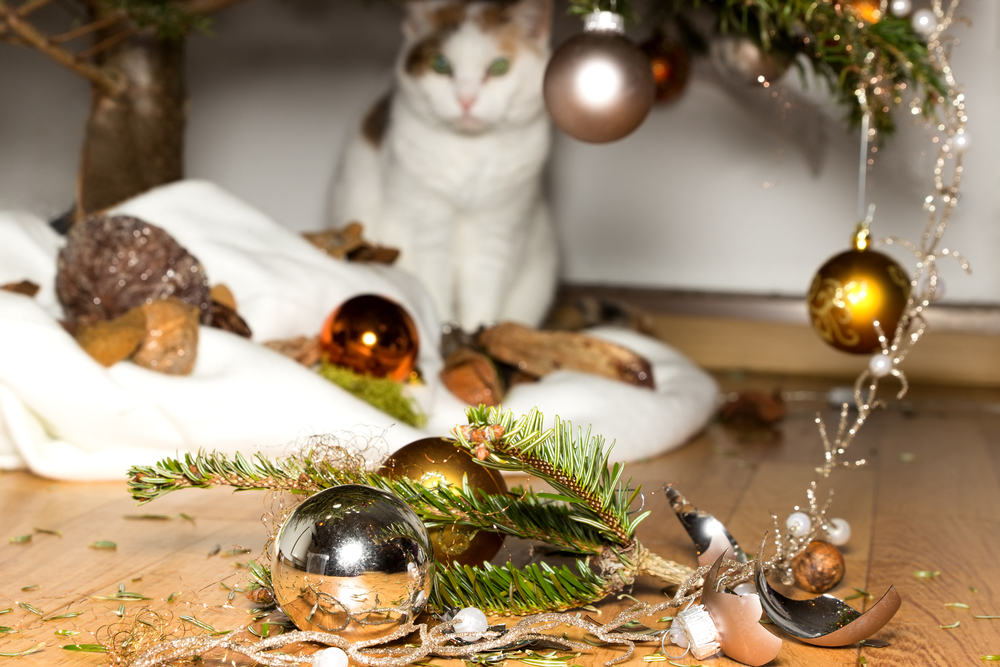
- Thanksgiving decor — The gourds, pumpkins, and cornstalks in your Thanksgiving centerpiece can grow mold, and produce dangerous mycotoxins that can make your pet sick. Dogs often love chewing on corn cobs, which can become a life-threatening intestinal obstruction, if ingested.
- Christmas tree — Your Christmas tree may topple over if your cat decides to climb the trunk, or your dog gets too rambunctious around it. Glass ornaments can be knocked off—with a little help—and break, and cut your pet’s paw.
- Tree water — The water sitting in your tree stand may contain chemicals from the tree, ingredients to keep your tree green, or mold. Pets are strangely attracted to this water, but drinking it may make them sick.
- Electric decorations — Tuck all cords out of site, since teething puppies and kittens may chew on them, and suffer electric burns. If your pet seems interested in the tree’s light strands, keep them out of the room when you cannot supervise them.
- Candles — Real candles can be knocked over by a wagging tail, or batted off the table by your cat. Opt for battery-operated candles to prevent a fire, or your pet being burned.
We hope you enjoy a healthy, emergency-free holiday with your pet. But, if they get into trouble despite your best efforts, contact our southwest Austin veterinarians at Oliver Animal Hospital for help.



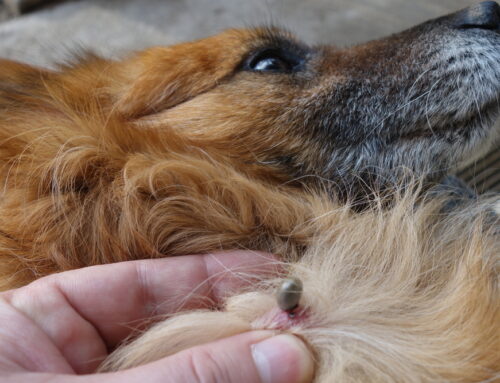
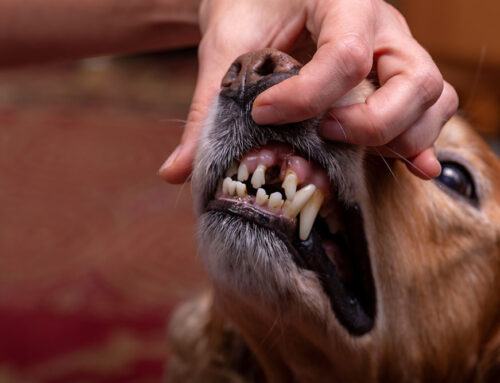
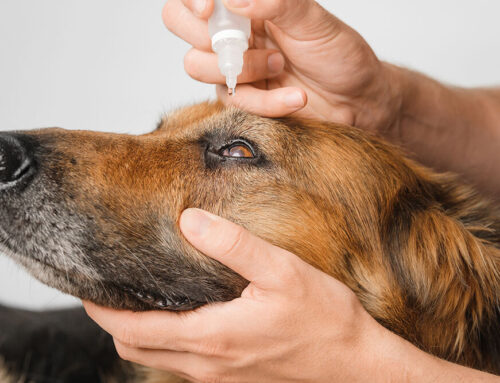
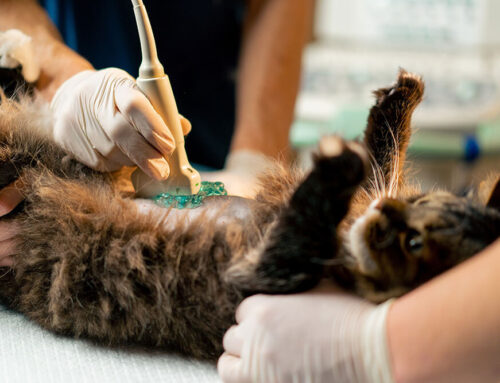
Leave A Comment